“I was allowed to return to school” – EU-funded INCLUDE project makes sure refugee students in Uganda aren’t left behind.
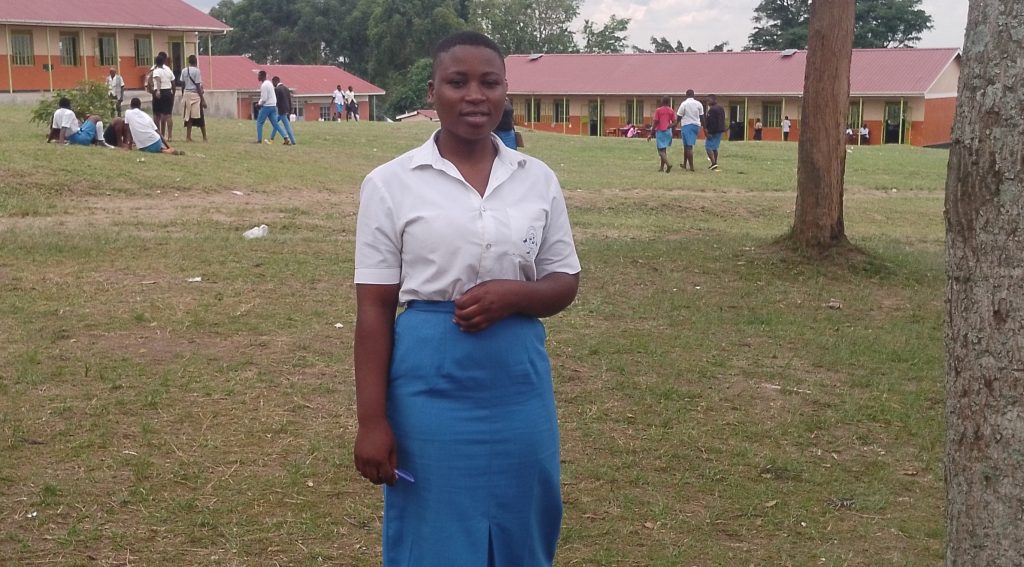
For children in refugee settlements, access to quality education is not just hampered by lack of schools. Lack of money, family support or basic hygiene supplies must all be overcome to make sure they can attend class.
Yet, refugee and vulnerable children are excelling in FCA supported schools. With funding from the European Union, FCA works in Uganda with Save the Children, Norwegian Refugee Council, Humanity and Inclusion and War Child Holland on the INCLUDE project.
RWAMWANJA AND KYAKA II refugee settlements are home to approximately 1,611,732 refugees and 48,792 asylum seekers. 949,598 of them are children. Many have fled violent conflicts, losing family members and parents. Refugee and host community children attend school side by side in the settlements, but with a large mix of nationalities and backgrounds, it’s tough for teachers to tend to every child’s needs.
Moreover, families are often without stable income. That means little food to aid concentration or no money to buy school supplies. In the case of one girl, it almost led to her dropping out of school to support her family.
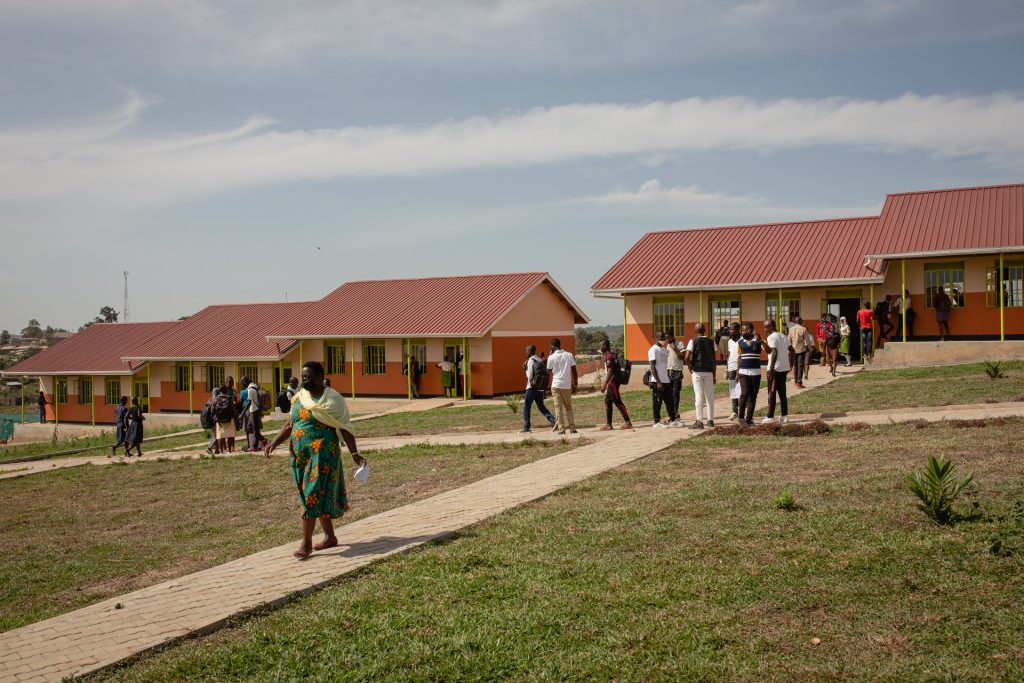
Cash for education supports children staying in school
Ujumbe Murujiza, an 18-year-old refugee hailing from the Democratic Republic of Congo (DRC), is currently enrolled in Senior Two at Rwamwanja Secondary School. But she might have not got this far.
She has eight siblings and her mother struggled to provide after their father abandoned the family.
“Life at home was unbearable,” Ujumbe recalls. “My mother, who often fell sick, struggled to make ends meet by working in community gardens.”
“My brothers had to collect empty bottles for sale just to help us survive,” Ujumbe explained. “I almost left school to work as a maid in Kampala district because we needed money.”
On discovering her plan, Ujumbe’s mother contacted FCA Uganda’s local field office. The Child Protection team met with the family and were enrolled in the Cash for Education programme, as part of the INCLUDE project.
“This support was a miracle for us,” Ujumbe reflects. “It covered school fees, uniforms, and even helped put food on our table.”
The INCLUDE project aims to be versatile and adaptive to the needs of the family in order to support the child’s return to and remaining in school. That’s why it covers diverse interventions, ranging from cash for education to ensuring access to nutritious meals through a school meals programme. It also promotes menstrual hygiene management and reproductive health awareness for both sexes to help children support each other to stay in school.
“I want to become a doctor in the future,” Ujumbe shares with unwavering determination. “After finishing school and getting money, I can support my family and build a better future.”
School meals programme boosts concentration in class
A proper meal can be make or break for a child to concentrate in school. Sometimes, it’s the only meal of the day a child might receive.
At Kikurura Primary School, the INCLUDE project helped start a programme where parents provide food for the students. The project gave out farming supplies like seeds, tools, and fertilisers. The school community worked together to grow crops on a 2-acre piece of land. They harvested 200 kilograms of maize, which helped feed the students.
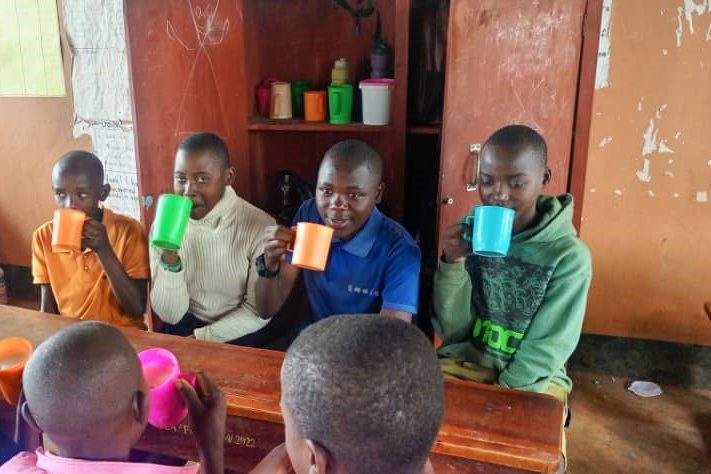
The school relies on the Parent-Teacher Association (PTA) for support. To make sure all 1,267 students have enough to eat, the school talked with parents at the start of the 2024 term. They decided that each parent would give an extra 3 kilograms of maize to add to the school’s harvest.
This collective initiative ensures that every student at Kikurura Primary School receives a daily cup of porridge.
“I no-longer feel hungry during school time and attend all the lessons,” says Shillah, a P7 student , while her classmate Aloysious told us, “many of my classmates no longer have to miss classes because of hunger. I have also noticed that my fellow students no longer steal food from others,”
Menstrual hygiene support helps girls stay in class
As a 15-year-old pupil at Rwamwanja Primary School, Francine’s education journey was marred by the lack of sanitary pads during her menstrual cycle.
“My schooling was tough, especially during my periods,” she explained. “I didn’t have sanitary pads, so I often missed class,” she says.
“I remember using small pieces of my mother’s old clothes,” she continues. “But blood would pass through, and I would get infections.”
FCA provided her reusable pads as well as lessons about menstrual cycle management. The construction of clean and safe hygiene facilities are also key.
“Our school has a proper changing room with soap and water. If I have my period during school, I can freshen up and attend class comfortably.”
Something that has also helped the girls is including the boys in the learning process.
“Everyone, including the boys, supports us girls during our periods,” Francine explains, recalling a kind act from a classmate. “Once, I needed help, and a boy offered me his sweater to cover up. It made me realise I’m not alone.”
“Now, I’m not worried about my periods anymore,” Francine asserts confidently. I feel confident I’ll achieve my dream of becoming a nurse and helping my family and community.”
Eric, a refugee from Burundi, topped the exams in Kyaka settlement
Eric Niyitegeka’s family fled violence in Burundi and settled in Kyaka II refugee settlement. He was keen to restart his schooling, but had missed out on crucial phases in his education.
FCA’s Secondary Accelerated Education Programme (AEP) was designed for children like Eric to help them catch up with their peers and the national curriculum in a supportive environment sensitive to the needs of refugee and vulnerable children.
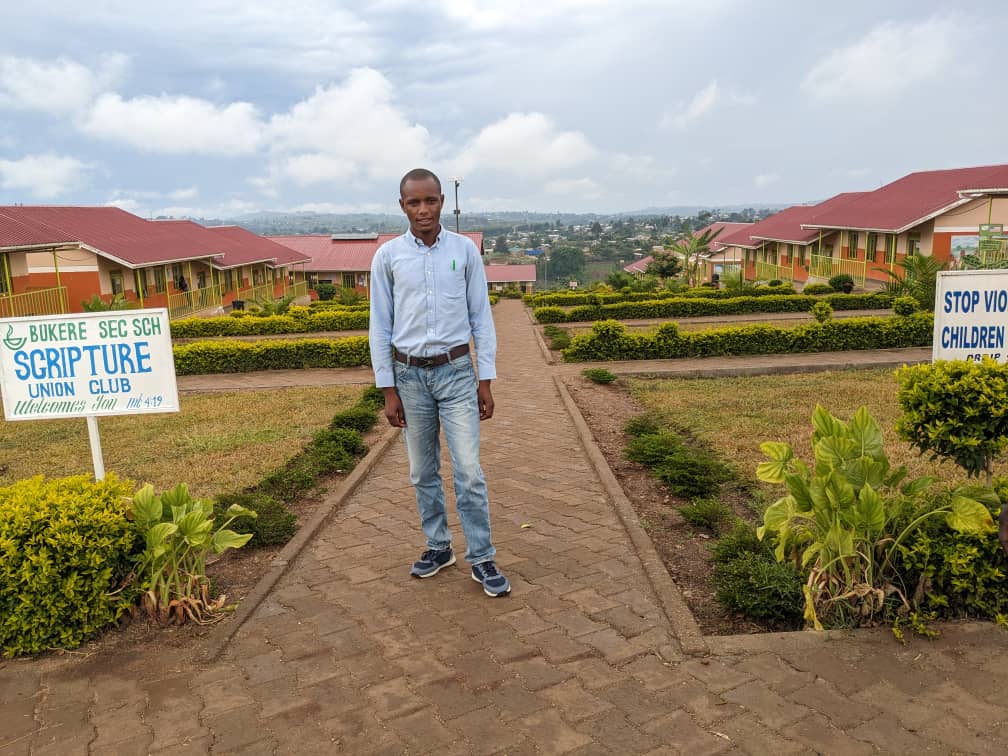
Eric worked incredibly hard, attending classes regularly and engaging actively in his studies. During the Uganda Certificate of Education (UCE) examinations in 2023 he came out top of the programme.
“The support I received during the programme was amazing. I was allowed to return to school. I was also given cash for my school fees and scholastics. I no longer had to worry about money, so I concentrated in class. I am hopeful that I will join the advanced level of education where I want to study Physics, Chemistry and Maths since I want to become an engineer in future. I am deeply thankful for the generosity of FCA and its donors,” he says.
Career guidance offers hope for the future
Keeping students in school is not only a case of providing for their material needs. Children and teenagers need inspiration and hope for their futures. FCA’s pioneering career guidance programmes have been adopted in several countries, not least in our supported schools in Uganda, as part of INCLUDE.
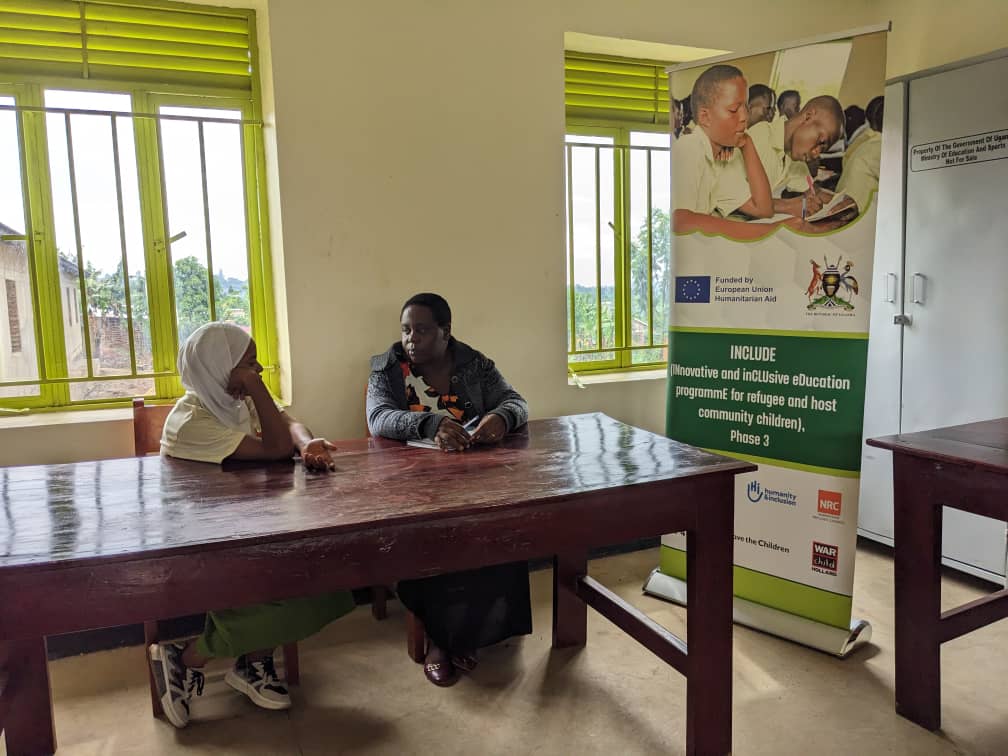
Acinath Bamurebe, a student at Bukere Secondary School, explains the impact they’ve made:
“I used to feel confused when thinking about what I wanted to do in the future. Many of us felt this way too. But thanks to our mentors, things started to become clearer. I was only in school because my friends were, not because I saw a bright future ahead. However, attending these sessions helped me think about what I’m good at and what I enjoy. The activities and talks from my teachers and mentors helped me understand myself better and decide what I want to do in the future.”
Teachers also included
Teachers are catalysts for change, but are often neglected themselves in terms of training, mentoring and career prospects.
As part of the INCLUDE project, we offer training sessions covering inclusive education, gender sensitivity, career guidance, life skills, and child protection to teachers. By incorporating new teaching methodologies, teachers enhance their ability to meet diverse learning needs.
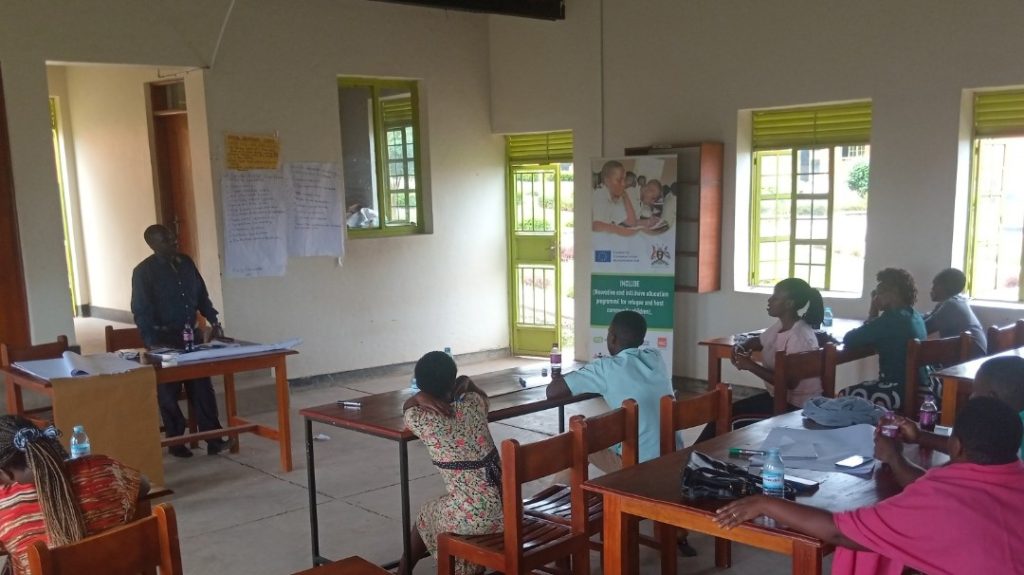
Phionah, an Accelerated Education Programme teacher, shares her experience:
“I now feel better equipped to address the varying learning needs of my students and create an inclusive learning environment where each student feels valued and supported in their educational journey. Consequently, students not only receive access to quality education but also acquire essential life skills and guidance crucial for their personal and professional growth.”
—
Funded by the European Union Humanitarian Aid (ECHO), the INnovative and inCLUsive accelerated eDucation programmE for refugee and host community children (INCLUDE) project is implemented by Finn Church Aid (FCA) in collaboration with Save the Children, Norwegian Refugee Council, Humanity and Inclusion, and War Child Holland. It is designed to address challenges to education for refugees and host communities, including newly arrived and out of school children in primary and secondary schools in Kyangwali, Kyaka, Nakivale and Rwamwanja Refugee Settlements.
Find out more about our work in Uganda.
Text: Linda Kabuzire
Photos: Rebecca Alum and Ronald Igulo